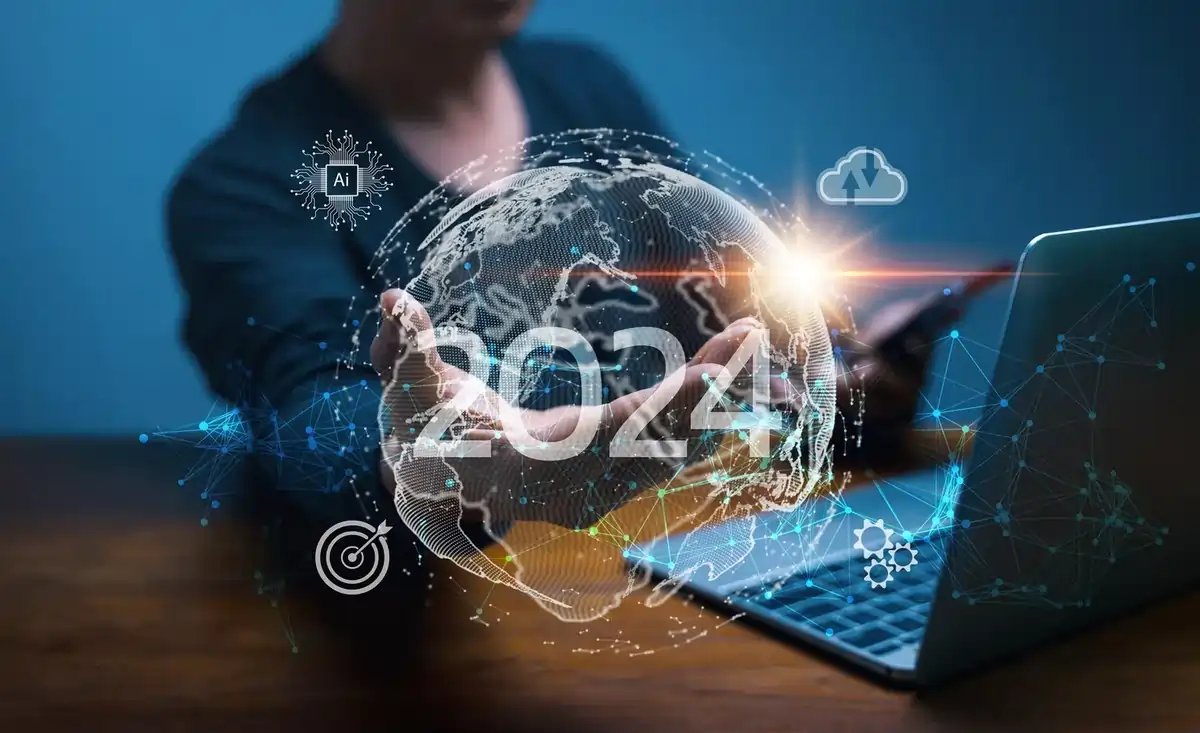The technological Future Tech Trends landscape is evolving at an unprecedented pace, driving innovation and transforming the way we live, work, and interact. From the automation of complex tasks to breakthroughs in computational power, technologies like artificial intelligence (AI) and quantum computing are at the forefront of this revolution. This article delves into the most influential tech trends shaping our future, highlighting their applications and economic potential.
The Foundation of Future Technologies

Defining the Digital Era
The digital age has introduced a wave of interconnected devices, data-driven systems, and automated processes. Future technologies build on this foundation, pushing the boundaries of what’s possible.
Drivers of Technological Growth
- Automation: Streamlining repetitive and complex processes.
- Connectivity: Expanding networks that foster seamless interactions.
- Sustainability: Innovating solutions for environmental challenges.
6 Breakthrough Technologies Shaping the Future

1. Artificial Intelligence (AI)
Revolutionizing Automation and Decision-Making
AI is transforming industries by enabling machines to perform tasks that require human intelligence, such as learning, reasoning, and problem-solving.
Applications:
- Healthcare: AI tools diagnose diseases, suggest treatments, and aid in drug discovery.
- Finance: Detects fraud, manages investments, and automates customer service.
- Retail: Personalizes shopping experiences and optimizes supply chains.
Projected Impact:
- AI will continue to drive efficiency and innovation across all sectors.
- Market value: Expected to reach $1.2 trillion by 2030.
2. Quantum Computing
Unlocking Unprecedented Computational Power
Quantum computing leverages quantum mechanics to solve problems at speeds far beyond classical computers.
Applications:
- Cybersecurity: Introduces quantum-resistant encryption methods.
- Pharmaceuticals: Simulates molecular structures to accelerate drug development.
- Optimization: Resolves complex logistical and financial problems.
Projected Impact:
- Quantum computing will transform industries dependent on data-intensive operations.
- Market value: Predicted to exceed $100 billion by 2030.
3. Internet of Things (IoT)
Connecting Devices for Smarter Environments
IoT enables devices to communicate and share data in real-time, creating interconnected ecosystems that enhance decision-making and efficiency.
Applications:
- Smart Cities: Improves urban planning, energy distribution, and waste management.
- Healthcare: Provides real-time health monitoring through wearable devices.
- Industrial IoT (IIoT): Optimizes production with predictive maintenance.
Projected Impact:
- IoT will streamline processes and create smarter, data-driven solutions.
- Market value: Estimated to reach $1.5 trillion by 2030.
4. Blockchain Technology
Securing the Digital Economy
Blockchain technology offers decentralized, tamper-proof systems that ensure transparency and security across various applications.
Applications:
- Supply Chain Management: Tracks goods from origin to delivery.
- Healthcare: Secures patient data and ensures interoperability.
- Decentralized Finance (DeFi): Simplifies financial transactions without intermediaries.
Projected Impact:
- Blockchain will redefine trust and efficiency in digital ecosystems.
- Market value: Anticipated to reach $500 billion by 2030.
5. Renewable Energy and Sustainability
Pioneering Green Technologies
Renewable energy innovations are critical to addressing climate change and ensuring sustainable growth.
Applications:
- Solar and Wind Power: Increases energy efficiency and affordability.
- Energy Storage: Develops advanced batteries for uninterrupted power supply.
- Smart Grids: Uses AI and IoT for optimized energy distribution.
Projected Impact:
- Renewable technologies will lead the global transition to clean energy.
- Market value: Expected to surpass $2 trillion by 2030.
6. Extended Reality (XR)
Redefining Interaction with Digital Worlds
XR, which includes Virtual Reality (VR), Augmented Reality (AR), and Mixed Reality (MR), creates immersive digital experiences that enhance engagement and productivity.
Applications:
- Education: Interactive virtual classrooms for enhanced learning.
- Retail: AR-powered shopping experiences that let customers try products virtually.
- Entertainment: Immersive gaming, concerts, and storytelling.
Projected Impact:
- XR will revolutionize interaction across education, retail, and entertainment.
- Market value: Expected to reach $500 billion by 2030.
Economic Potential of Emerging Technologies

| Technology | Estimated Market Value (USD) | Key Benefits |
|---|---|---|
| Artificial Intelligence | $1.2T+ by 2030 | Enhanced decision-making, automation |
| Quantum Computing | $100B+ by 2030 | Advanced simulations, secure encryption |
| Internet of Things (IoT) | $1.5T+ by 2030 | Real-time insights, improved connectivity |
| Blockchain | $500B+ by 2030 | Transparency, secure transactions |
| Renewable Energy | $2T+ by 2030 | Sustainable energy solutions |
| Extended Reality (XR) | $500B+ by 2030 | Immersive interactions, new industries |
Challenges in Advancing Future Technologies

High Development Costs
Creating and deploying advanced technologies requires significant investment in infrastructure and talent.
Solutions:
- Public-private partnerships to share financial risks.
- Government subsidies and grants for innovation.
Data Privacy and Security Risks
As technologies like IoT and AI rely on massive amounts of data, ensuring security and compliance is paramount.
Solutions:
- Strong encryption and cybersecurity protocols.
- Adoption of global data protection standards.
Workforce Transformation
Rapid innovation demands a workforce with advanced technical skills, posing challenges in recruitment and training.
Solutions:
- Investment in education and reskilling programs.
- Encouragement of continuous learning through online platforms and certifications.
Embracing Tomorrow: Building a Future Fueled by Technology

Innovations that Redefine Possibilities
Future Tech Trends Emerging technologies such as AI, quantum computing, IoT, blockchain, XR, and renewable energy are not just tools—they are transformative forces that promise to redefine industries and improve lives. These advancements offer solutions to some of the world’s most pressing challenges while unlocking opportunities for economic growth.
By fostering collaboration, investing in education, and addressing ethical concerns, we can ensure that these technologies deliver sustainable progress. The future of technology is not just about adapting to change; it’s about leading it, creating a world of endless possibilities and unprecedented potential.
